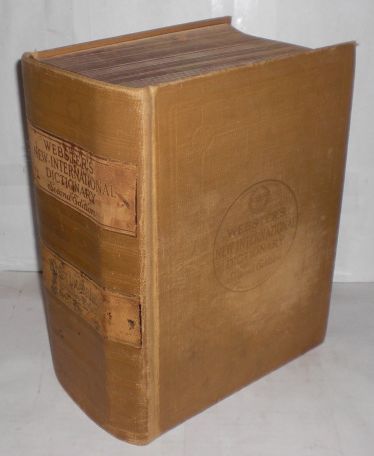Big books
Teachers in the kind of schools I attended had one, standard, piece of advice for a student with a need for (a) definition: “Look it up in the dictionary”. There was always one available.
In fact, once some discretionary budget was available at home, I bought one. Small enough to keep around in my book bag. Made me the target of some wisecracks, when someone spotted me reading it in a public place. I survived. Even added a thesaurus to the reference set, when Scholastic put one in the monthly flyer.
But there was always a niggling doubt. Wouldn’t a larger dictionary be better? You know; words are powerful, therefore big words are even more so. And so I kept a keen eye on the world, and sometime around graduation (from university), I added the dictionary of my daydreams to my growing personal library. A rescue from an abandoned building, no less.
The Webster’s New International Dictionary, Second Edition.

From now on, I could face the world. Scrabble. Crossword puzzles. Lists of lists. Except that life had other priorities, and the occasion to look up the defining definition happened less and less often.
This morning, while still able to lift the beast, it moved from the collection to the outgoing pile. Next load of books, meet your travel companion. What with the Web, and experience, and a redefined sense of priorities, I no longer need a book that requires muscle tonus to provide information. May the next owner appreciate the history contained between those substantial covers.


